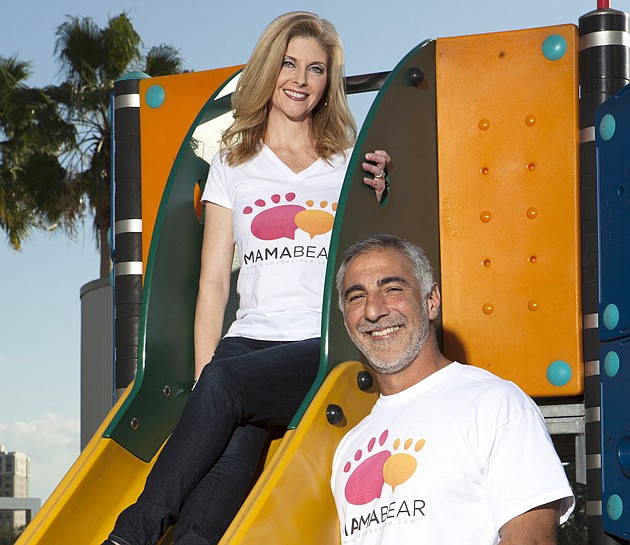- November 25, 2024
-
-
Loading

Loading

Suppose your 15-year-old son decided to skip school and spend the day exploring a casino and saloon. Wouldn't you want to know?
Or suppose three classmates were bullying your 12-year-old daughter through a social media website. Would you want to know?
Those are the kinds of scenarios that spurred the creation of MamaBear, a mobile phone app by the Tampa company GeoWaggle LLC. The app is designed to allay parents' concerns relating to the safety and well-being of their children.
Using GPS, the app can track kids' location or gauge whether they're driving too fast. It triggers alerts if, for instance, a child has unexpectedly left a school playground. It also monitors kids' use of Facebook and other social media, notifying parents if certain words are used, indicating a potential safety issue or parenting concern.
The company was founded by entrepreneur Steve MacDonald, chairman and CEO of myMatrixx, a pharmacy benefit management firm, with co-founders Stuart Kime and Tom Cardy. Their MamaBear child-tracking app is still in beta mode, but MacDonald and company President Robyn Spoto are drumming up interest through media tours and a marketing campaign that includes visits to schools.
The executives aim to line up 100,000 customers for the app before going live and charging an estimated $5 to $10 monthly per customer. Their plan has been to garner local support first, and they did, attracting 10,000 app downloads in the Tampa Bay area. The app is available for Apple and Android phones.
After a presentation to national media at the 2013 International Consumer Electronics Show in Las Vegas, the entrepreneurs are shifting their marketing campaign to Los Angeles.
“We're trying to get enough momentum in local markets so we get picked up nationally,” says MacDonald, who has invested $1 million of his own funds in the MamaBear app to date. “We think that 100,000 [paying customers] creates a stable platform.” That number times $10 per month from subscribers would bring in $12 million per year.
In developing his game plan, MacDonald studied the trajectory of the website Pinterest. “Pinterest took off because people started sharing this great new tool. We're trying to follow the same strategy that Pinterest did. This thing needs to be a utility. It needs to be something that enhances [subscribers'] lives and gives them a sense of security.”
MamaBear has drawn media attention, with CNBC calling it “one of the world's most promising new companies.” The idea developed after MacDonald and a tech executive began exploring trends in the mobile phone field, and decided that location-based technologies offered untapped opportunities.
The initial app helped restaurants and stores target nearby customers with loyalty programs and promotions, says MacDonald. But in a chance conversation with the tech executive, a woman commented that she wished the same technology were available to keep track of her sons and monitor their Facebook sessions. She would use it all the time, she said.
MacDonald didn't brush off the comment when the tech officer told him about it. Instead, he listened. “This is a real opportunity,” he thought. “So we hired another development team. We used the basis of technology that we had already developed.” From start to finish, it took about eight months to launch the first app version on Apple.
It resonated with parents. But although newspapers and websites wrote about MamaBear, and teachers expressed interest as thousands of users downloaded the beta app, MacDonald believes he needs even stronger national attention to make the new company fly. “One of my goals is to get on the 'Today' show or 'Good Morning America.' If we get to that, it's pretty easy to get to $1 million.”